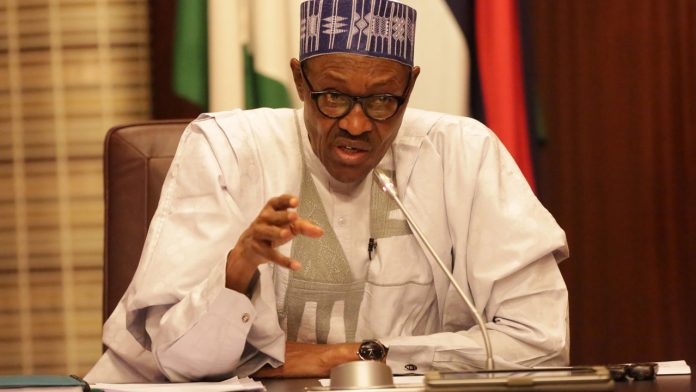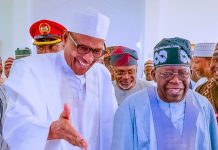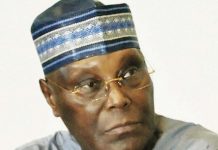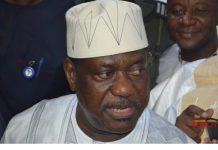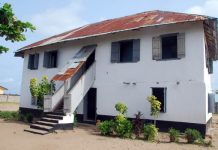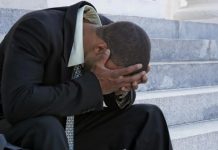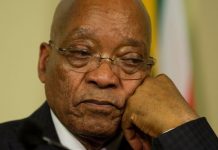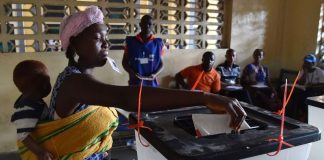By Pat Chukwuelue
President Muhammadu Buhari (who returned to the country on the 19th of last month after spending 103 days in Britain on medical vacation) and Vice-President Yemi Osinbajo have set a new style in political governance. They recently held a joint meeting with leaders of the ruling All Progressives Congress, APC, and the main opposition party, the Peoples Democratic Party, PDP. Although the event opened a fresh page in the management of the country’s democracy,itcreatedquestions because other opposition parties were not invited to the forum.
The meeting tended to convince many Nigerians that there is nothing like ideology in the lexicon of politicians in the country. Many people will swear that there is no remarkable difference between the key actors and leaders of the two political parties who are used to switching party allegiance at the slightest excuse based mainly on material considerations. However, some political observers believe that the meeting also showed thatas the 2019 general elections approach, the PDP has positioned itself to wax stronger. This flowed naturally from the recent resolutionof its leadership crisis through the Supreme Court verdict.
No doubt, the fact that the forum was convened in Aso Rock, the seat of presidential power, meant that only invited chieftains would be granted entry. Understandably, it was attended by the chairmen of both parties, Chief John Odigie-Oyegun of APC and Senator Ahmed Makarfi of the PDP, who had in tow the senior members of the leadership of their parties. From whichever way one looks at it, it was the first of its kind in the country.
The public had no prior knowledge of the parley and as such no one could have known the agenda. Therefore those who are still expecting a communiqué from the meeting should relax.What is generally believed is thatthe discussions focused on the state of national affairs – economic, social and political development. In particular, theseeminglyunrelenting agitations for the restructuring of the countryas well as the rising clamourfor division by separatist groups have not only heated up the politybut havealsoexacerbated internal security and threatened the country’s unity.
Reacting to the concerns of the public after the forum, presidential spokesmen explained that the meeting was sequel to the request made by the main opposition party to hold audience with the President over issues of urgent national importance. However, no one knows whether the party’s claim that the anti-corruption war was targeted at its members only, featuredat the meeting. What is clearly known is that the ruling party felt the need to address the concerns raised by opposition politicians, especially members of the PDP.
It is widely believed thatPresident Buharisaw the forum as a fine chance to reiteratehis appeal to Nigerians, in general, and the opposition, in particular, to embrace constructive criticisms of government actions and policies. He also definitely seized the opportunity to convince the politicians on the importance of appreciating the government’s efforts towards bringing Nigeria out of its current economic and political quagmire.
According to reliable sources, the leaders of the ruling party also seized the chance toappealdirectly to the opposition to sidetrack party politics and join themin the salvaging the country.There can be no doubt that the way the PDP took up the vanguard of the call for restructuring the country had given the chieftains of the ruling APC sleepless nights. Some discerning members of the public wonder why the PDP did not tackle the issue when it had the reins of power, especially after its national leader, ex-President Goodluck Jonathan had convened a national conference that virtually came up with such a stand. They would not be wrong if they now view the PDP quest for restructuring as playing to the gallery in order towin votes in the polls ahead.
And talking about the 2014 National Conference, it is no secret that the ruling party does not seem to be in a hurry to implement the report. This is rather curious because the APC, which championed restructuring at that point in time, now harbours no sympathy for much of the outcome.Those who say that the ruling party has now made a U-turn on theissue certainly have a point.
On the other hand, some political analysts have described the convening of the parley as a sure sign that Nigeria’s democracy has recognized the place of the opposition in the scheme of things. In the March 2015 presidential election, the APC sent the rulingparty packing. What is there to guarantee that a similar feat will not happen in 2019?
The spectacle of former military commanders taking to politics and eventually becoming Heads of state is well known in Africa, nay in Nigeria. For instance, former President Olusegun Obasanjo, served as Nigerian helmsman under the aegis of the PDP after transiting as an army generaland military Head of state. One can easily understand why such brand of politicians does not see the essence of brooking any opposition. They would rather devise military strategies to crush those considered as irritants and enemies of peace and progress. This explains why some analysts have cheered the APC, which now has a former Army general as its flagbearer, pursuing the quest to find a middle ground to stand in its zeal to move the country forward.
Expectedly politicians in other parties who were not part of the meeting have vehemently condemned the event while some of them have actually threatened to drag the president to court over the matter. But presidential spokesmenhave explained that the meeting was held at the instance of both the APC and PDP.According to the Senior Special Assistant, Garba Shehu, “The leadership of the APC and PDP asked for an audience with the President separately and the President decided to meet with them together. If that is the way it happened, we may as well let the sleeping dog to lie.






